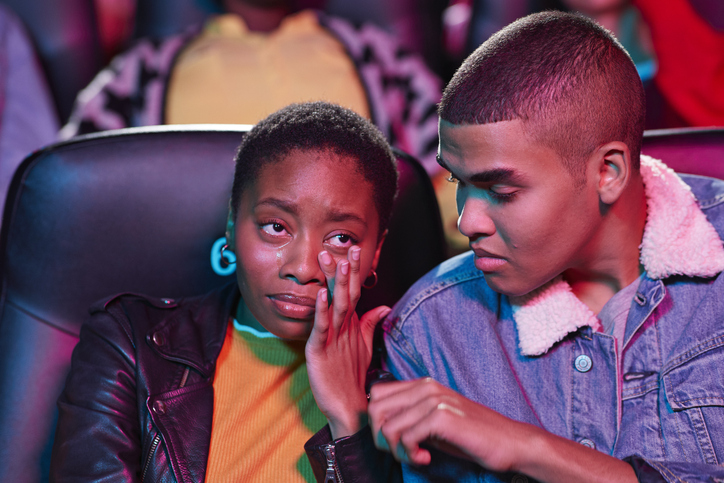
Source: PeopleImages / Getty
Trauma bonding is something you may have, on some level, always known about but never quite been able to give a name to. You may have participated in it several times in your life, or dated someone who seemed to be attempting it – whether or not he knew that that’s what he was doing. But there may have been times when you felt very close to someone, very quickly, and yet it also felt scary and unhealthy. There may have been times you felt instantly bonded to somebody, almost drawn to them – addicted to them – but you felt a bit strange or sad after spending time with the person. You had friends who also claimed to be in love or obsessed with someone they were dating, and you could tell that how they felt about their relationship was very different from how you felt about yours. You almost felt like you had some dark secret surrounding your relationship, but you weren’t quite sure what it was.
Right now, with the entire world experiencing some degree of trauma due to the COVID-19 pandemic (an overlooked side effect of this virus), the risk of trauma bonding is especially high. And with so many people looking to make new connections online to mend the loneliness that comes with isolation, the chances of trauma bonding increase yet again. It’s alright to relate to someone’s pain, and want them to relate to yours. That’s just called normal human empathy. But it shouldn’t be the foundation for your relationship. That’s when trauma bonding begins to happen. Let’s explore what trauma bonding is a bit more, and identify signs that it’s happening to you in your relationship.

Source: Klaus Vedfelt / Getty
You meet during a traumatic time
The most basic sign that a relationship is based on trauma bonding is that the two people in it met while going through trauma. They may have suffered the same trauma – like both were witness to the same violent event – or they may have suffered separate traumas, but met when both people were still fresh off the event, and very unstable.









